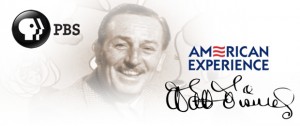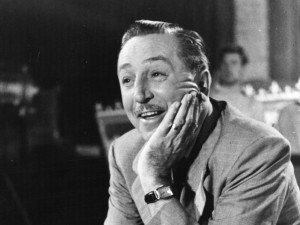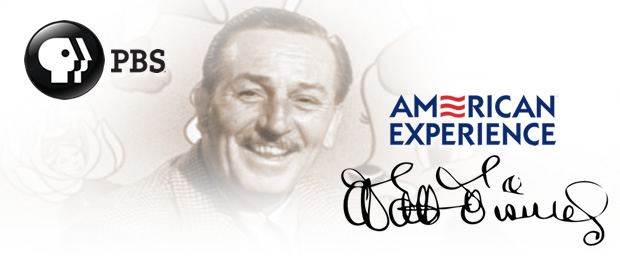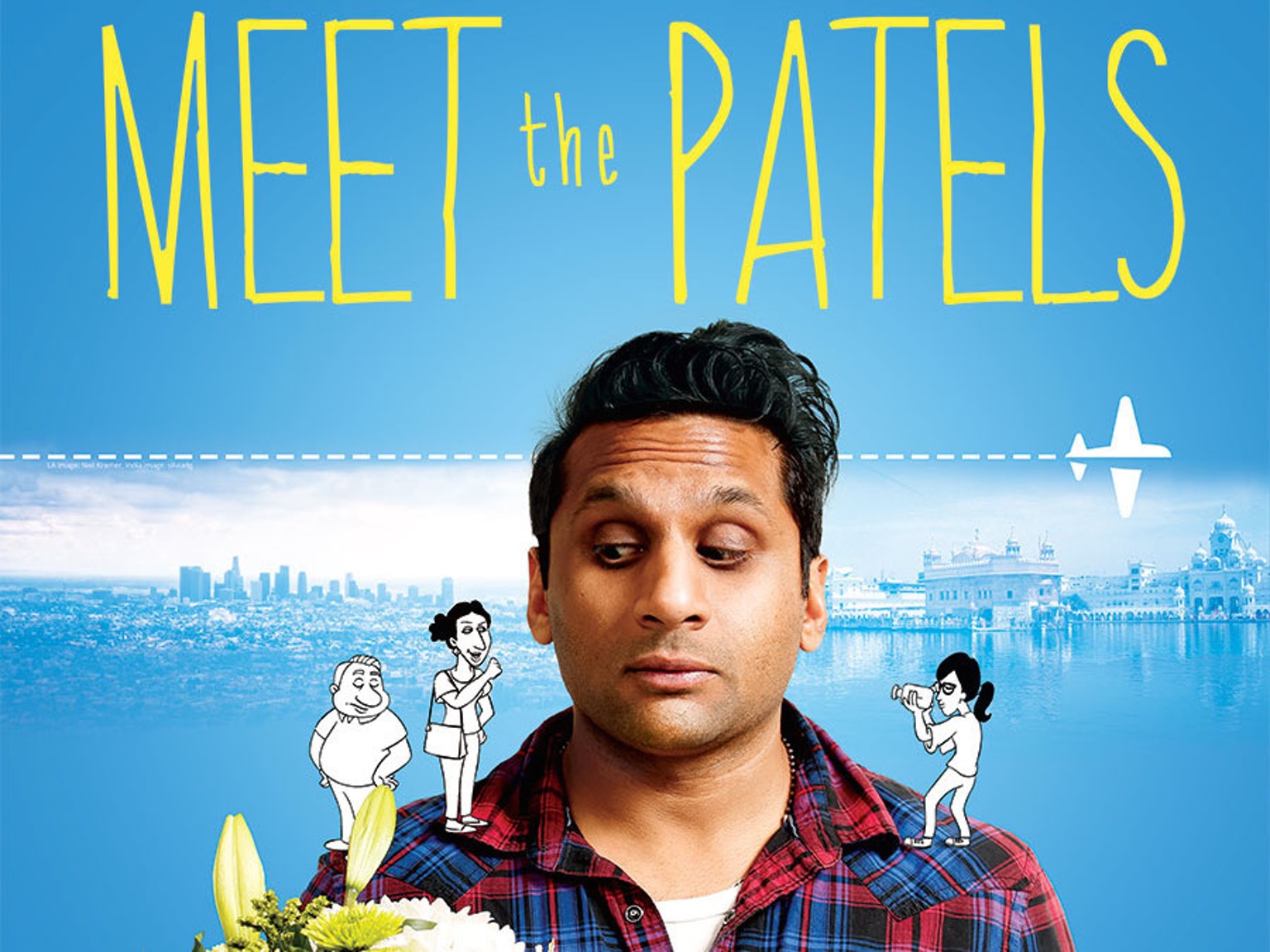Interview: Sarah Colt on the PBS Documentary “Walt Disney”
Posted on September 13, 2015 at 3:18 pm

Sarah Colt’s two-part “American Experience” documentary about Walt Disney is a fascinating look at one of the towering figures not just of film history but of American history. Disney revolutionized film and the way we tell stories with his animated features, nature documentaries, and family entertainment. He created a new industry and a new way for families to vacation together with Disneyland and the Disney World properties. He was a pioneer of new technologies from sound recording to photocopiers and animatronics. And he built one of the world’s most successful businesses. It premieres September 14 and 15, 2015, on PBS stations.
Director Sarah Colt told me that the Disney company opened up its vast archives for her with no restrictions and no right to review the film before it was made public.
It was really an amazing thing and we were thrilled. It made the project possible. From a documentary film maker’s perspective who has worked on a bunch of historical films this was like a dream come true. Because I was making a film about an artist, a filmmaker, and an animator. So not only was there material of him and the behind the scenes kind of stuff that you are always looking for but also his work. To be able to use big chunks of “Snow White” as part of the story was just amazing. So that was just incredible. I’ve never made a film about a filmmaker before. That was very fantastic to have all that material. And their photograph collection is very well organized. They have a really good database and we could access what we needed. The footage of the behind the scenes kind of material was harder to find because the Disney Company. They are not a professional archive and that’s not their main purpose so not surprisingly their collection is not necessarily all in one place, it’s in lots of different places and it was a lot of work. They totally helped us but it wasn’t a one stop thing where you just look in a database and there’s all the material. There was a lot of hunting and talking, asking questions and then were these big moments of excitement when we found things. I’ll give you an example, the footage of Disney playing baseball with his colleagues. I had seen it once somewhere in another film but we were not finding and nobody at Disney could find it and then all of a sudden they found it and not only did they find it but it had sound. Most of the footage from that era as you probably know doesn’t come with sound attached, so we do sound design. So when you hear those voices cheering Disney as he is hitting the balls and running the bases, those are the voices of the people there and those kinds of finds were very exciting because they helped to really tell the story in a way that you wouldn’t be able to do without that kind of material.
Disney’s fascination with using new technology is a theme of the documentary and there is a charming example of one of his earliest cartoons, before he had his own company, with a real little girl interacting with animated characters, like this Laugh-o-Gram production from 1923, featuring Walt Disney himself.
He was an innovator, no question in a lot of different areas, and technology was definitely an important part of his ability to innovate. So he was always pushing things. It wasn’t that he was actually inventing things but he would see how other people were doing things and he had these ideas to take them to the next level. I think sound is a great example of that and we use that as our main example of his technical innovation in the film. Other cartoonists were using sound and experimenting with sound and sound was becoming a part of the movie business. But what Disney did with sound was to take it and really make it an integral part of what the film was about so that the film didn’t make sense without sound, instead of the sound just being kind of layered on top of it. He had a way of pushing things and what I think is really interesting too is that he understood the potential. It wasn’t that he figured all these things out, it was like he had an idea and then he would surround himself with the most talented people in every category. If you’re thinking about artistry, the most talented artists, when it came to technology the most talented people with that, so a perfect example is his collaboration with Ub Iwerks. You know Ub Iwerks was very talented but also he really was technically amazingly savvy. So Ub helped Disney take things to the next level. I don’t think alone either of them could have done what they did but together they did these amazing things. So Disney was always collaborating with the top people. Now he was always in charge, there was no question that he was the visionary, he was in charge but he recognized talent and he was able to attract talent. And that’s how I think his technological innovation happened because I don’t think, he certainly wasn’t technical wiz, it was more that he was figuring out how to do that with other people’s talent.
But the documentary is frank in showing that he cultivated talent and he appreciated talent and yet he alienated a lot of the talent, resulting in a strike and defections to a rival studio, both which hurt him deeply.

He was a complicated boss. I think he was a very good leader. He knew how to create a sense of excitement, he knew how to translate vision and get other people excited about it but at the same time I think he could be quite insensitive. He treated some people very kindly, very well and then treated other people not as well and he was very unaware of how he alienated people. As the film portrays, the strike is the ultimate example of something that could have probably been avoided by a leader who had been more aware of himself and what was going on around him. He was blind to things that were happening right in front of him and so he could be a very difficult boss. I think he was very demanding. He demanded the highest level of performance from people and some people did very well under that but some people were mad that they were not being properly compensated. They were working long hours without being recognized for the work they were doing. I think he could be very difficult and so he was charming but he was also I think demanding and difficult.
One of the film’s most moving sections concerns the brief time Disney spent as a child in the small town of Marceline, Missouri, which he thought of always as the happiest time of his childhood. Disneyland’s Main Street and many of the settings of his film reflected his idyllic memories of Marceline.
Right from reading the first biography it was clear that Marceline was a hugely important place and whether it’s a real place or more of an imagined memory of a place it was crucial and so it was clear that we needed to include it in both his upbringing but also how he remembered it. And so we were especially happy to have footage of his return to the town with his brother as adults. It was just such a wonderful way to be able to take note of how important Marceline had been to him as a child and how important it was to him. And then what better way to see him as a middle-aged man in a suit kind of visiting this little town in the Midwest and how important it was. So I feel like that’s where my job as a documentary filmmaker is so fun because it’s like you’re using these finds that you have, we found that footage and I was like, “Okay, this is the scene and this is going to be how we really show how it builds into Disneyland and what does Disneyland mean and so Marceline is in a way kind of a version of a Disneyland for Disney. For Walt Disney it is this place in imagination, a place where he felt safe, a place where he was with animals and nature and an escape from the troubles and the problems of real life and so I think that’s what Marceline represented for Disney and then Disney takes that and makes Disneyland.
Colt wants the film to show people Disney as a person, a man of vision, a man of sentiment, and a dreamer who always liked to remind people that it all started with a mouse.
https://www.youtube.com/watch?v=DgdeLgCdUNcWhen people hear “Disney” they may think of the company or its products. It’s very easy now especially with the amazing success of the Disney company since his death to forget who he was and that he was a real person. I want people to be able to take away that he was human and that he was human both an exemplary human being and also he had flaws, and he was complicated and that some of his greatest successes came out of difficult things from his own personal life and experience. And that it’s a layered and much more a kind of deep and interesting story than the legend of Walt Disney.



